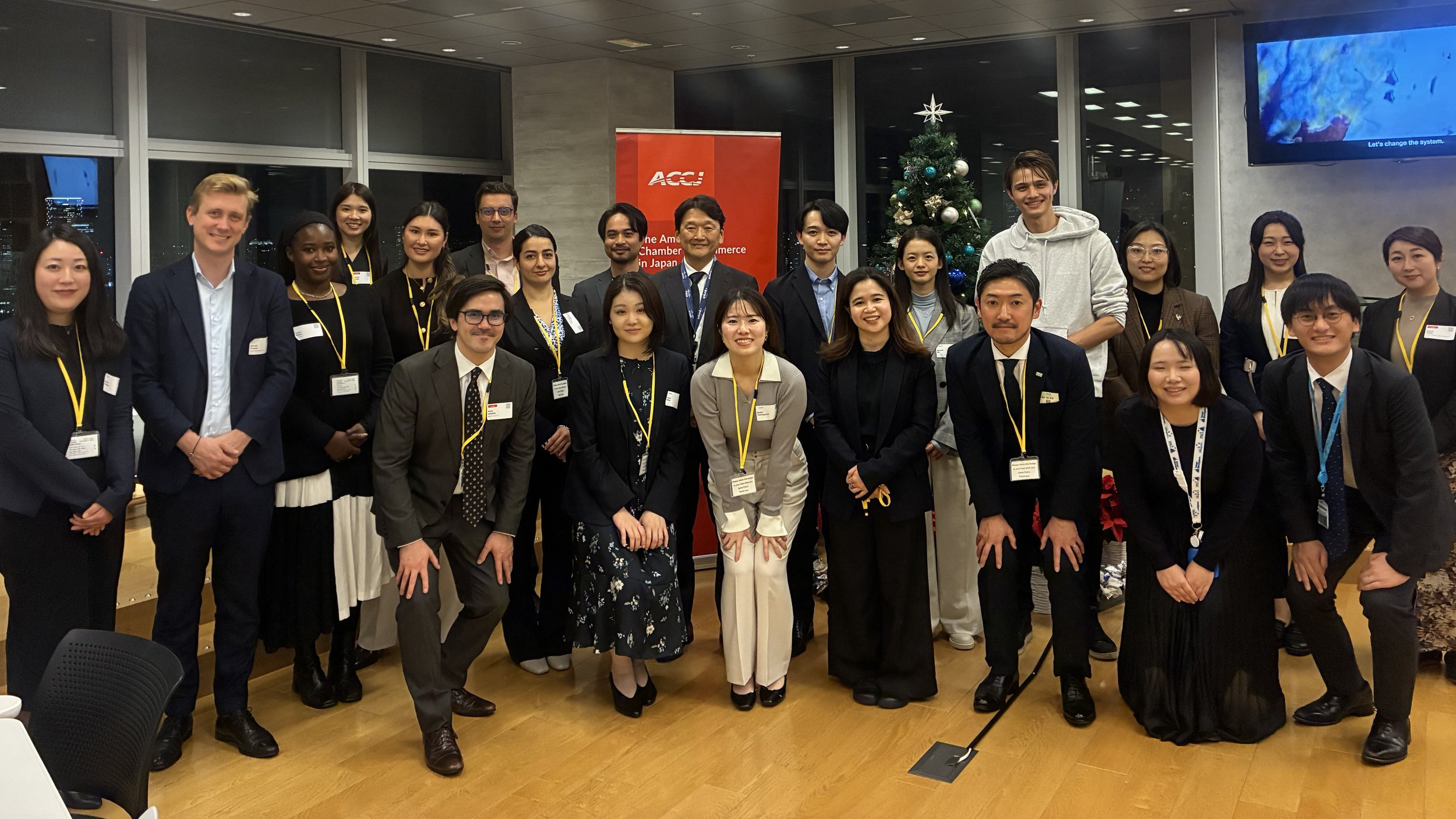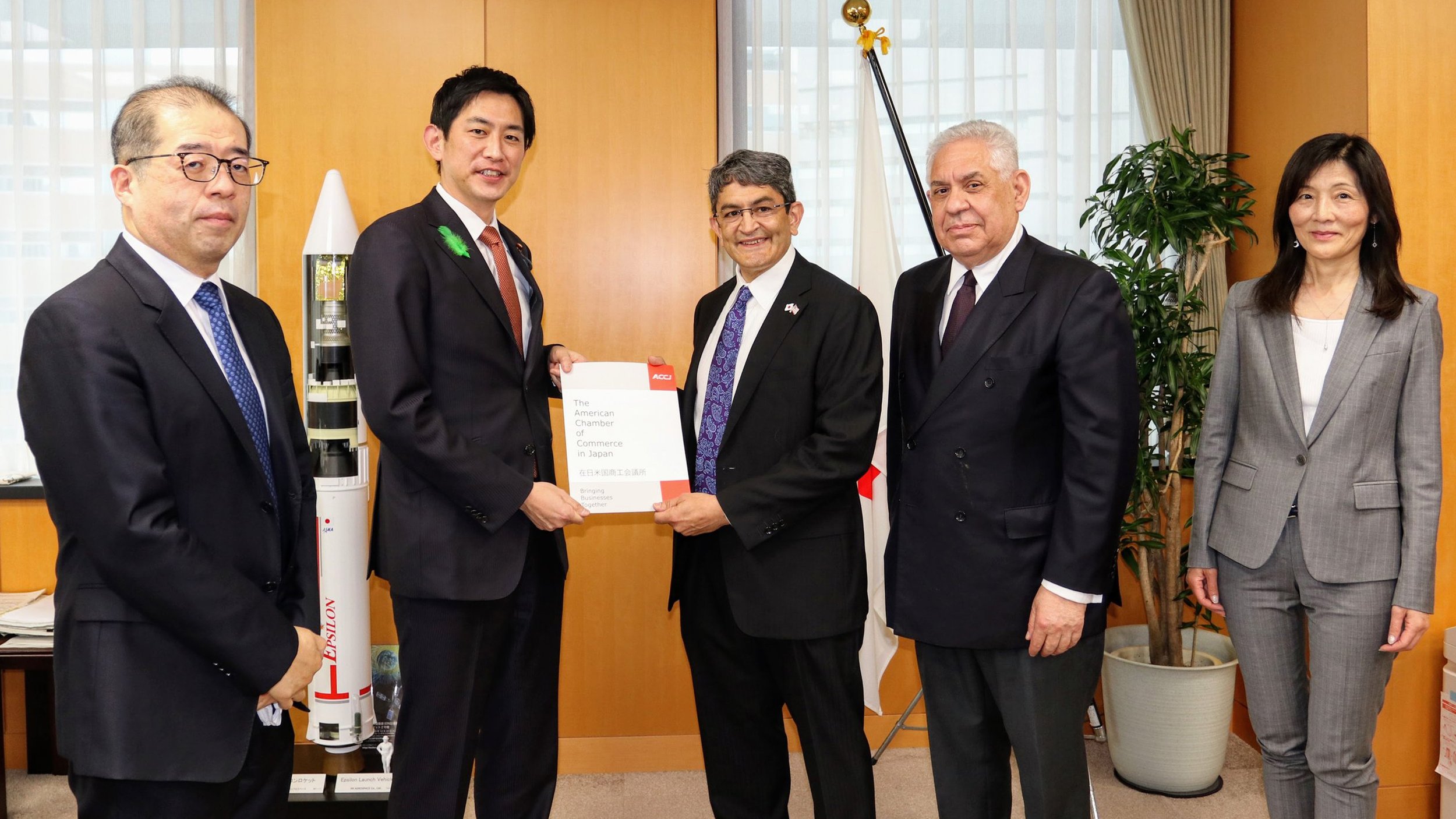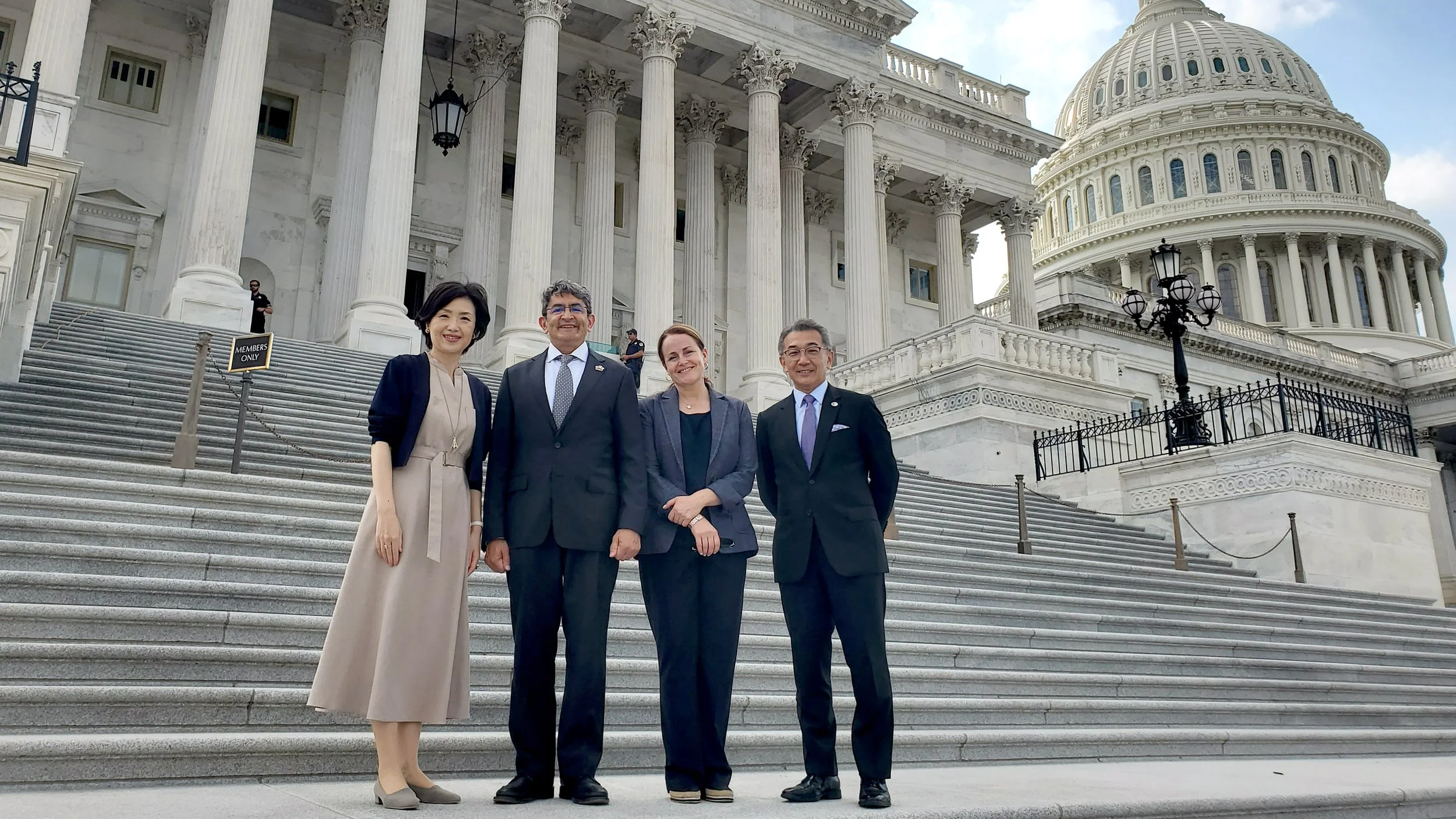Columns
Jesper Koll
With Japan uniquely positioned to emerge as a true 21st-century global leader, Jesper Koll asks who will write the rules governing our future?
Jesper Koll explains why Japan is open for business despite the turmoil and uncertainty sweeping the world.
With the Year of the Snake poised to be a good one for Japan, renowned economist Jesper Koll predicts 10 possible twists for the year to come.
Qualitative predictions are based on a combination of experience and intuition. Like an inspired jazz solo, they deliver a genuine surprise that you did not expect but cannot live without once you’ve heard it. What unexpected riffs does 2024 have in store for Japan? Jesper Koll shares 10 twists and turns that could make for an interesting Year of the Dragon.
The year 2023 will go down in history as the moment when global investors began to take a serious interest in Japan. Jesper Koll shares the four Japan megatrends you and your corporate strategy must seek to exploit.
They are not really part of the global Davos jet set. Many still proudly print a fax number on their cards. And in the age of the short quip, they lack a strong social media presence. But if you’re looking for extraordinary resilience and all-around competence, Japan’s salaryman CEOs have a very impressive track record, explains Jesper Koll.
Surprises are the spice of life that make us perk up and challenge our baseline assumptions. And what better time to sprinkle them on than the start of a new year? Of course, there will always be a surprise or two, but here is my annual list of possible surprises that could add up to a heaping load for Japan in 2023. Whichever may come to be, I wish a happy, healthy, and prosperous new year to all!
Currency markets move in the direction of maximum pain. Now that yen depreciation is accelerating toward my ¥150–160 to the dollar parabolic overshoot target, outlined in the spring 2022 issue of The ACCJ Journal, it is worth thinking about where the maximum pain threshold might be, and what forces will arrest the yen’s fall from grace. Who will buy Japan?
A specter is haunting the world economy, the shadowy specter of inflation. Economists are fiercely debating from where it has come, politicians are busy blaming their opponents and, as always, the average citizen is left with no choice but to pay up. Yes, we all know inflation is lurking all around when you now must pay $50 for your $40 haircut that you used to get for $25 when you had hair. Japan stands out as the one economy in the world with a relatively benign inflation shock. Economist Jesper Koll explains why.
With the Year of the Tiger well underway, here is Jesper Koll's annual list of Japan Surprises. These are not baseline scenarios or probability-ranked results of quantitative models but, rather, some of the things that Jesper says keep him up at night thanks to that nagging suspicion that some events could change everything. And yes, there is plenty of room for positive surprises from Japan in 2022.
Healthcare
Since the onset of the Covid-19 pandemic, the biopharmaceutical industry has come together in unprecedented ways to attack the virus, and we have achieved incredible progress in just two years. The industry was able to develop vaccines in just 12 to 18 months, and almost 11 billion doses have been administered worldwide. To put this success in perspective, it typically takes eight to 10 years to develop a vaccine, and the overall success rate is only 5 to 10 percent. But our work is far from over.
University and government venture funds play a much larger role in Japan than they do in Western countries. Yet we see fewer biotechnology startups here compared with, say, the United States, which is home to eight of the top 10 highest-funded ventures. Why?
As a super-aging society with a population of more than 100 million, Japan has the potential to become a destination for healthcare innovation. Its citizens have easy and equal access to quality healthcare services, with pharmaceuticals and medical devices playing important roles in improving quality of life. But there are technological obstacles to overcome. The US medical device industry is leading the effort to develop a data platform in Japan which will enable traceability in healthcare.
The Japanese public is concerned that domestic pharmaceutical companies have yet to launch a single Covid-19 vaccine. Some may argue that this is due to a low rate of vaccine confidence, as is seen in the national tendency to avoid the human papillomavirus (HPV) vaccine, which has, in turn, caused a problem for vaccine development.
Japan faces a very modern problem: its success in delivering universal health coverage and fostering longer life expectancy has led to demographic and social changes that are giving rise to a new set of interconnected healthcare challenges. As the Japanese government moves to reform its healthcare system to address these challenges, new policy approaches will be necessary. With the right approach and policies, Japan can continue to improve the health of its citizens and create a blueprint that aging societies around the world can follow.
One reason that foreign companies choose to invest in Japan is the nation’s high-quality manufacturing and services sectors, as well as its technological prowess and innovative workforce. Maintaining the health of the population—beyond the immediate challenges of Covid-19—is, therefore, critical to the future prosperity of the country and the viability of its business environment.
Young Professionals
Executives expressed interest in how younger generations navigate the growing demands of modern work, while young professionals highlighted the need for clearer expectations, balanced workloads, and supportive management.
Faced with a dwindling workforce, companies in Japan are locked in fierce competition to find young talent who can carry the organization forward and inject it with fresh ideas and vitality. Many overlook an option that offers tremendous advantages for employers and students alike: internships.
The FGS Global corporate communications consultant shares he has benefited from ACCJ connections, mentorship, and events.
Globalization in the working world may make it feel as if you can pick up and build a career anywhere. However, starting a career in Japan as a foreigner or non-native Japanese speaker presents a distinct challenge. Here are some ways to find your own path.
The World Kinect business development executive shares how the ACCJ has helped her grow her career.
ACCJ Governor Connor Myers shares his journey to becoming the chamber’s youngest current board member.
Morgan Stanley associate Ina Enatsu shares how the company’s culture and programs have helped her grow personally and professionally.
Mentorship is a familiar concept, but in a world where workplace dynamics are constantly evolving, who says mentorship needs to be top-down? This recent Young Professionals Forum event challenges the notion.
En World Japan Senior Consultant John Marasigan shares how the ACCJ has helped him step forward and grow .
Kraft Heinz Japan Digital Marketing Manager Sari Koyama shares how she cultivates lasting connections with Kraft Heinz customers and YPF members.
Finding a place in a community of seasoned executives can seem daunting. To make it easier, the chamber offers a platform tailored specifically for working professionals aged 35 and under.
Fresh ideas and youthful energy are the lifeblood of business and international relations, and the ACCJ is dedicated to nurturing rising talent through the Young Professionals Forum.
Being self-aware—cognizant of your unique strengths and what sort of work brings you joy—and not just climbing the corporate ladder because that’s what everyone else seems to be doing is critical to building a satisfying career. That was one piece of advice shared by Satoshi Mizusawa, president and representative director of Stryker Japan K.K., when he spoke on September 16 at the latest installment of the Next Generation Leader Series, hosted by the American Chamber of Commerce in Japan (ACCJ) Young Professionals Forum (YPF).
Technology
University and government venture funds play a much larger role in Japan than they do in Western countries. Yet we see fewer biotechnology startups here compared with, say, the United States, which is home to eight of the top 10 highest-funded ventures. Why?
As a super-aging society with a population of more than 100 million, Japan has the potential to become a destination for healthcare innovation. Its citizens have easy and equal access to quality healthcare services, with pharmaceuticals and medical devices playing important roles in improving quality of life. But there are technological obstacles to overcome. The US medical device industry is leading the effort to develop a data platform in Japan which will enable traceability in healthcare.
The Japanese public is concerned that domestic pharmaceutical companies have yet to launch a single Covid-19 vaccine. Some may argue that this is due to a low rate of vaccine confidence, as is seen in the national tendency to avoid the human papillomavirus (HPV) vaccine, which has, in turn, caused a problem for vaccine development.
AI gets a lot of attention these days, but its application to farming is not often in the spotlight. Sagri Co., Ltd. uses AI, machine learning, and mapping technologies to solve social problems. I had the opportunity to talk with CEO Shunsuke Tsuboi about the challenges that agricultural technology startups in Japan face when it comes to funding, as well as the benefits of their technology.
Environmental, Social, and Corporate Governance
The International Federation of Accountants has updated the International Standard on Auditing 600 (ISA 600), and the revised standard went into effect on December 15, 2023. What are the advantages and disadvantages of the revisions when it comes to group audits?
With two new sustainability standards in effect for annual reporting as of January 1, 2024, companies may need to reassess their internal controls to ensure they are compliant with disclosure requirements.
Japan has detailed ambitious plans for the wider deployment of renewable energy sources throughout the economy. Yet energy experts caution that Tokyo is unlikely to reach those targets unless policy changes are made.
To help Japan capture a market forecast to grow to up to $4 trillion by 2040, METI has created an $8 billion fund to support biomanufacturing, a field that encompasses technologies which leverage genetic technology to maximize the ability of microorganisms to produce substances.
Globally, 14 percent of greenhouse gas emissions originate from the transportation sector—and that jumps to 27 percent in the United States. Cars aren’t the only culprits. The aviation industry is also concerned about its share of carbon dioxide (CO2) going into the atmosphere. On our way to a sustainable, carbon-neutral future, bypassing such pollution is a must. The ACCJ Journal spoke with companies in the automotive and aerospace sectors to take the pulse of transportation and find out where future journeys might take us.
For several decades, Japan has executed a successful strategy of importing its energy via long-term contracts and relationships. Meanwhile, renewable electricity supply has expanded greatly under the feed-in-tariff and feed-in-premium systems, known as FIT and FIP. But current circumstances pose a challenge that necessitates a new approach.
ESG has become another fixed feature of a company’s operating landscape. As such, it requires increasingly specific rules and requirements. So far, the ESG agenda has primarily focused on the E, as companies tackle climate change, largely by reducing emissions and carbon footprints. However, the spotlight is also moving to the S, which includes the social impact of our value chains.
Tamao Sasada, Japan country executive for Bank of America and president of BofA Securities Japan, sits down with The ACCJ Journal to share her thoughts on a number of topics, including how Japan can push the DEI and ESG agendas forward.
While the number of Japanese companies active in Africa has doubled over the past decade to more than 900, Japan continues to lag the European Union, the United States, China, and India. The Ministry of Economy Trade and Industry (METI) is focused on encouraging Japanese businesses to support sustainable growth in Africa through projects that address vital social needs, leverage digital transformation, provide technical skills training, and boost renewable power generation.
Japan has incredible potential to support innovative startups and for strong economic growth. Yet it continues to fall short compared with the United States and many other countries. Why is this? What can be done to turn the tide, energize business, and bring greater diversity and opportunity to the country? These questions and more were addressed on July 19, when the American Chamber of Commerce in Japan welcomed Kathy Matsui, Yumiko Murakami, and Miwa Seki, the co-founders of MPower Partners, Japan’s first global venture capital (VC) fund focused on environmental, social, and governance (ESG) criteria.
President
As Victor Osumi passes the presidential baton, he reflects on two terms as ACCJ president and the achievements of fellow board members, leaders, and members in advancing the strong US–Japan alliance.
This spring has been a pivotal and exciting time for the ACCJ and the country as a whole. President Victor Osumi shares key events so far in 2025.
As 2024 draws to an end, ACCJ President Victor Osumi looks back on the remarkable achievements of the chamber to foster partnerships, embrace progress, and bridge to the future with excellence.
The 75th anniversary of the ACCJ is an important time to reflect on all we’ve accomplished, how far we’ve come, and how much more there is to achieve. As we find ourselves in a much more complex world the ACCJ must be agile and adapt if we are to continue serving our purpose and our members.
The May meeting of G7 leaders in Hiroshima has focused efforts across the ACCJ to ensure that our voice is heard—and the importance of the chamber reinforced—as Japan and the United States work to coordinate critical policies. Of particular importance are all matters digital.
Looking back at 2022, it was a year of great progress for the American Chamber of Commerce in Japan (ACCJ). I was honored to represent you as president and am humbled to have been reelected for a second term. This year, I look forward to building on our progress, harnessing the energy of our members and leaders who so generously share their time and expertise.
The past few months have been an incredibly dynamic time for Japan and the chamber, as we have continued to be very active in its engagement with the US and Japanese governments through meetings with congressional delegates. Japan laid former Prime Minister Shinzo Abe to rest, and Prime Minister Fumio Kishida announced on September 22 that Japan will fully reopen on October 11.
One of the greatest attractions of the American Chamber of Commerce in Japan (ACCJ) is our myriad activities and the vibrancy of our members. From networking to advocacy to information exchange, the ACCJ is not only the voice of global business in Japan, but a dynamic, rewarding community. The coronavirus pandemic challenged our ability to sustain our energy, but our members are resilient and resourceful. We not only adapted and maintained our inspiring event schedule and connections virtually, but we gained new skills along the way that now allow us to extend our reach and foster greater engagement as the way we interact continues to evolve.
Those movies in which a fighter pilot steps into the role of president and leads everyone through challenging times are always inspirational. ACCJ President Om Prakash, also chief executive of Northrop Grumman Japan, is a US Air Force veteran who was a fighter pilot, test pilot, and vice wing commander of the 82nd Training Wing. In a year filled with opportunities in a transformed world, The ACCJ Journal sat down with Prakash at the Northrop Grumman office to learn more about his background and thoughts on the path ahead.
This is an important year ahead of us. Not only do we welcome a new ambassador but, as our new administrations on both sides of the Pacific get to work together, there are new, exciting, and dynamic opportunities for all of us engaged in commerce between this important alliance of the US and Japan.
Publisher
Live sports and in-person gatherings added to the feeling of normality as chamber events such as the ACCJ Charity Ball, which returned to its in-person format at the Hilton Tokyo in Shinjuku, and the Tokyo and Kansai Shinnenkais kick off the year.
AI is beginning to create content that is sparking questions about ownership. For some time, companies have been using AI-powered tools to give computers the task of writing articles, social media posts, and web copy. Now, AI-powered image-generation engines, such as Stable Diffusion, Midjourney, and the Deep Dream Generator, have hit the mainstream. One day, might DEI be extended to machines?
The intersection of health and technology has become an important part of my life. They say that when you turn 40 your body starts to fall apart. They also say that 40 is the new 20. I say that neither is true, not entirely, but as you age you do have to work harder to stay fit. In this issue of The ACCJ Journal, we embrace the vision, ideas, and creations of those entrepreneurs and companies who are developing solutions to the wellness challenges facing society.
For most of the past two years, we’ve been writing about overcoming the challenges of the pandemic. While the threat of Covid-19 continues, and will likely remain with us for a long time, we’ve adapted and are learning how to function and flourish in a changed world. This includes adjusting how we work. To explore this new reality, we’ve put together four features that focus on various aspects of work and the expectations now shaping the path to success. Plus, there's lots more in the spring 2022 issue of The ACCJ Journal.
Transitions have been a way of life over the past two years. The coronavirus pandemic has forced companies to rethink how they operate, how they manage staff and workflows, and how they communicate. The winds of change have also rustled through the pages of The ACCJ Journal. Since bringing the magazine in house at the start of this year, we’ve made some adjustments and additions that have allowed us to better meet the needs of chamber members and communications. This has been a prelude to a bigger shift.
Most members of the American Chamber of Commerce in Japan (ACCJ) will agree that a greatly missed part of business life over the past two years has been meeting fellow professionals in person. I know that, as a writer and editor, covering the chamber’s events is a highlight of putting together each issue of The ACCJ Journal. It’s been a long road through the pandemic but, thankfully, the ACCJ is once again hosting in-person sessions. The number of these events is limited, but it is wonderful to see that opportunities for networking in the physical world are returning.
Ever since third grade, when my stepfather took me to a store where we bought a rubber stamp emblazoned with Jones Inc., the entrepreneurial spirit has been part of me. This spirit is one reason I enjoy working with so many talented and inspiring businesspeople through the ACCJ to share stories of ideas brought to life and the determination to succeed as an expat.
As we continue building entire issues of The ACCJ Journal around singular themes, this time we take a look at investment—specifically, investing in Japan. From individual entrepreneurs to large organizations, there are many opportunities to be had. There are also many needs to be addressed as the world continues to battle Covid-19 and look beyond the pandemic.
Executive Director
I would like to pause and reflect on the journey we’ve been on and look ahead with positive energy. Over the past several months, talking to leaders of companies large and small, I have found that they are fairly optmistic about the prospects for this year. They are hopeful about moving forward and getting on with business. Of course, there are challenges—supply chains, travel—but there is a feeling that these can be overcome as the ongoing pandemic evolves into a new normal.
One of the strengths of the American Chamber of Commerce in Japan (ACCJ) is the dedication and commitment of our office staff. Their dedication provides the continuity that allows the ACCJ to continue to provide member-focused services and have the ability to adapt to member needs over time. This is especially true in the case of Naoko Kitada, who retired from her position as accounting manager on October 31, after more than 28 years. She joined the ACCJ on October 1, 1993, as assistant accountant.
One of the greatest strengths of our international business community is the varied experiences and skills of our members. I’m proud of the way in which the American Chamber of Commerce in Japan (ACCJ) has transitioned to a virtual environment that allows us to serve the needs of the membership through a robust schedule of events and meetings. But, during the pandemic, tapping into our network for a less formal exchange of ideas and expertise (the way we would during coffee breaks in more normal times) has been a challenge. This month, we’re launching a pilot project to help members discover and connect with other members.































































